Estimated reading time: 11 minutes
Disclaimer: I am not a medical doctor and nothing in this article should be taken as medical advice. Please talk to your doctor before using any of the herbs and/or remedies mentioned in this article.
You probably already know that, in addition to adding flavor to food, many herbs have abundant medicinal properties. However, as we have come to rely more and more on the medical community to treat common physical ailments, many of us have forgotten how to use these plants to promote healing in our bodies.
Since most herbs are easy and inexpensive to grow in your garden, on your patio, or on your windowsill, let’s dig deeper into how you can use them to help your family stay healthy.
Want to save this post for later? Click Here to Pin It on Pinterest!
Here are the top 10 herbs that every homesteader should grow.
1. Basil
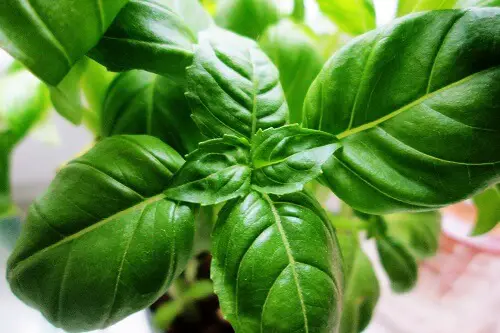
Fragrant basil comes in a wide variety of types and sizes, but holy basil is the type best known for its healing benefits. Every part of the plant is helpful; its roots, leaves, stems and even seeds have been made into essential oils.
Basil works as an anti-inflammatory and anti-bacterial agent in the body and can protect the body from illness and infection. It can serve as an antiseptic for scrapes and cuts, and it can offer tension headache relief because of its muscle relaxing qualities.
Here are ways to use fresh basil for healing.
- Make a medicinal tea. First, add two tablespoons of chopped basil to boiling water and then let it steep for about five minutes. Strain. You may sweeten the tea with honey if you like and then sip it slowly to ease digestion or to soothe a cough.
- To help sore throat pain, brew a tea the same way but without adding honey. Let the tea cool and then use it as a gargle.
- For headache relief, add about five basil leaves to boiling water and let boil for a few minutes. Let cool and then sip slowly. Some people who suffer from migraines report that they have experienced some relief by chewing a basil leaf at the first signs of a migraine.
- Break up congestion due to a cold by adding a few chopped basil leaves to boiling water. Remove from heat and breathe in the steam to help with congestion. (Take care not to get too close to the steam as it can burn.)
- Ease an insect bite or sting by applying crushed basil to the painful area. It helps to draw out the poison while helping the lessen the itch.
- Improve your concentration and possibly your mood and mindset by simply sniffing fresh basil.
Here is a video that shows a recipe for basil tea and here’s a video that shows you how to dry your summer crop of basil for later use.
2. Bergamot
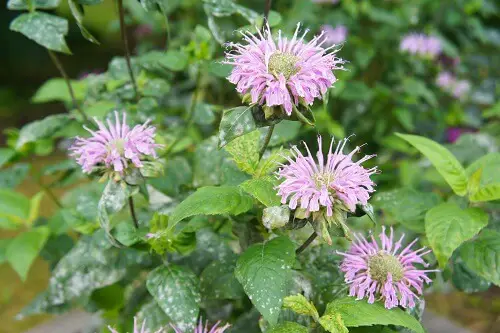
Bergamot (also known as Oswego or bee balm) is an aromatic herb that has a spicy, citrusy flavor in tea. You also can add bergamot leaves to salads for extra flavor and nutrition.
Bergamot also has medicinal uses. It can help lower a fever and aid in digestion and offer headache relief. Additionally, fresh bergamot leaves applied to the skin can help heal pimples and other blemishes.
Here’s how to make bergamot tea.
- Place a handful of bergamot herb leaves and flowers into a teapot.
- Pour at least two cups of boiling water over the herbs and cover the pot.
- Steep for five minutes.
- Add a little honey (if desired) and serve while still hot.
Here is a helpful article on bergamot.
3. Chamomile
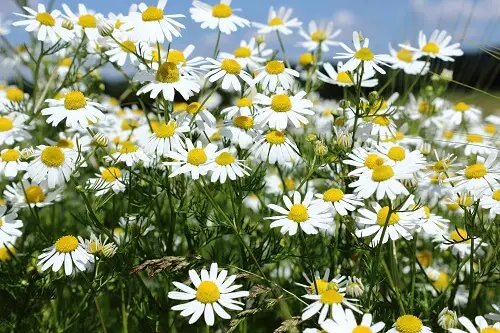
In addition to its well-known calming properties, chamomile can help relieve an upset stomach and can help heal skin irritations and acne scars. Chamomile is a gentle way to calm colicky babies.
Want to start a homestead but not sure how?
Click Here to get a FREE book, "How To Homestead No Matter Where You Live."
Here's how to make your own chamomile tea:
Ingredients:
- 3 to 4 TB fresh chamomile flowers
- 1 small sprig of fresh mint
- 8 oz boiling water
Directions:
- Place fresh flowers and mint in a mesh bag or strainer and place them in a teapot.
- Pour eight ounces of boiling water over the chamomile flowers and mint and let steep for five minutes.
- Strain as needed and serve while hot.
Here is an article on how you can use chamomile to heal acne scars.
4. Clove Tree Flower
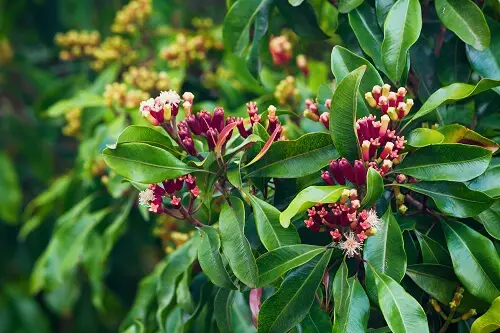
Most people don't think of this one, but it's extremely important. Cloves, which are the flower buds of the clove tree, are the perfect numbing agent for tooth pain. If you have a dental emergency but you're living off the grid, you will need a way to deal with the pain. The solution is cloves or clove oil. Apply the juice or oil to the area where you feel tooth pain and it will feel better almost immediately.
Another reason cloves are good for people with dental problems is because of their antibacterial properties. They are also known to reduce fevers, but there is no hard evidence of that yet. Here is how to make clove oil.
5. Lavender
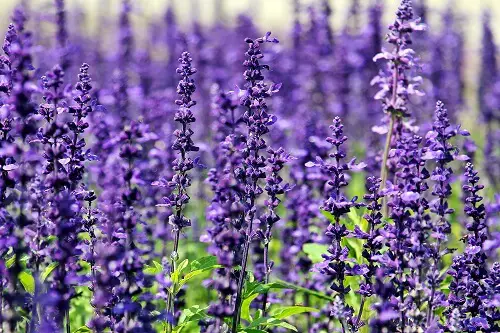
The lovely fragrance of lavender is known to help people relax and feel calm. Lavender also can work as a topical antiseptic for the skin, and it can ease digestive problems and headaches. It also can help induce sleep.
You can use lavender as part of an essential oil or in dried form. Here are some options:
- Herbal Tea – Mix with mint leaves or chamomile to make a soothing herbal concoction. Just steep the dried leaves in boiling water five minutes. Strain and add honey if you wish.
- Dandruff Remedy – You can use cooled lavender tea as a scalp rinse to help get rid of dandruff and an itchy scalp. Or place the cooled tea in a spray bottle to use an after-sun spritzer.
- Nighttime Mask – Place dried lavender in a sleep mask or inside a pillowcase to help promote sleep.
- Facial Scrub – Combine dried lavender flowers with oatmeal to create a gentle and sweet-smelling scrub for your face.
Here is a video that shows how to make lavender oil.
6. Lemon Balm
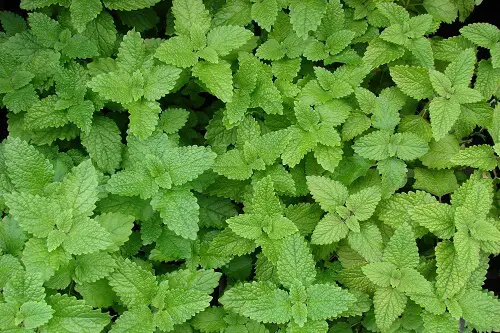
Lemon balm is a versatile and easy-to-grow herb that has been used for centuries to treat insomnia, wounds, and digestive problems. The Greek physician Dioscorides wrote about using this citrusy herb for stings and dog bites.
Here are a few ways to use lemon balm as a medicine.
- Lip Balm – You can infuse lemon balm in almond oil and then add some beeswax to make a lip balm that helps soothe cold sores.
- Lemon Balm Infused Oil – Mix one cup of olive oil with a half cup of fresh lemon balm. Let the mixture stand for four to five days at room temperature. Then strain out and discard the herbs. Place the oil in a clean jar, which you can store in the refrigerator for up to six months.
- Lemon Balm Tea – Use two tablespoons of fresh lemon balm leaves or one tablespoon of dried leaves for each cup of boiling water. Let steep for about an hour. Strain and add honey or lemon (if desired) before sipping the tea.
Here’s a helpful video on how to use lemon balm on your homestead.
7. Oregano
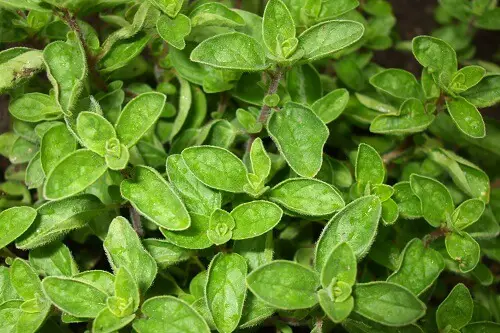
Often used in Italian cooking, this flavorful and aromatic herb has many healing properties. Oregano can help treat muscle pain, nausea, toothache, headaches, digestive issues, and menstrual cramps.
To make oregano tea, place three teaspoons of fresh oregano leaves (or one teaspoon of dried leaves) in one cup of boiling water. Steep for about five minutes. You can add some honey or another sweetener to counteract the bitter taste.
Oregano oil is useful for treating insect bites and burns. Breathing in the scent of oregano and oregano oil can help open up nasal passages. Here is a helpful article that explains how to make oregano oil.
8. Peppermint
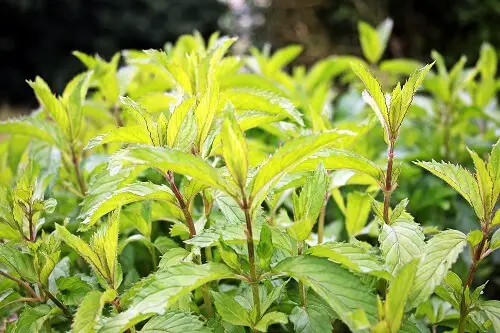
Peppermint is sometimes called “the world’s oldest medicine.”
Simply inhaling the smell of peppermint can help alleviate nausea and vomiting symptoms that are associated with motion sickness. Sipping peppermint tea can calm nerves and reduce headache pain. Peppermint also promotes dental health and can help fight bad breath.
Drinking peppermint tea can reduce a fever gradually and gently.
Here is how to make a homemade peppermint tincture.
Want to start a homestead but not sure how?
Click Here to get a FREE book, "How To Homestead No Matter Where You Live."
Ingredients:
- 1/2 cup peppermint leaves
- 1/2 cup diced ginger root
- 1/4 cup dried fennel seeds
- 1 1/2 cups boiling water
- 1 1/2 cups rum or vodka (drinkable varieties with minimum 40 percent alcohol content)
- Quart glass jar with airtight lid
Directions:
- Put peppermint, ginger, and fennel in a jar and pour boiling water over them until herbs are just covered.
- Fill the remainder of the jar with food-grade vodka or rum and close jar with lid.
- Store jar in a cool dark place for two to six weeks, shaking the jar on a daily basis.
- Strain out herbs with a mesh strainer or cheesecloth.
- Store liquid store in small jars or vials.
This video explores the uses and benefits of peppermint.
9. Thyme
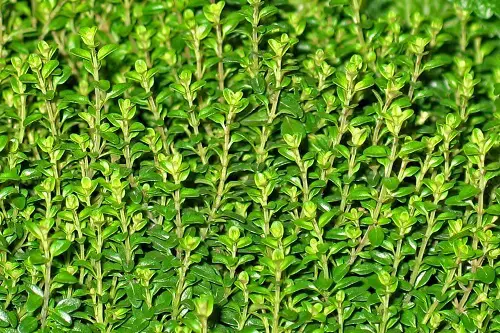
Thyme is known to help ease cold symptoms, such as coughing and congestion, and indigestion. Thyme also can be used in a poultice to reduce throat pain, as a gargle to treat mouth sores and a sore throat, and as a tea to ease nerves and stomach upset.
To make thyme tea, you will need about three thyme sprigs for each 1 1/2 cups of boiling water. If you have a tea ball infuser, chop the thyme sprigs before steeping.
You can drink thyme tea as is or sweetened with a slice of lemon or ginger or by adding a bit of honey to your tea. Here is an interesting article on thyme and its healing benefits.
10. Wooly Lamb's Ear
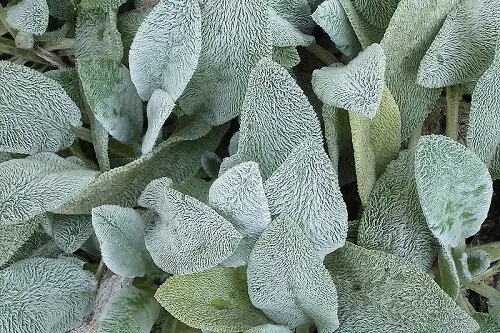
This plant is also known as “Nature's Band-aid.” That's because you can put the soft leaves on minor cuts and scrapes in order to slow down or stop the bleeding. Even better, the leaves have antibacterial properties, making it less likely that your wounds will get infected.
In addition to treating cuts and scrapes, you can also use wooly lamb's ear leave for rashes and bug bites–it will reduce the pain and swelling. Also, if you have an upset stomach or diarrhea, try making some tea with it. You'll feel better before you know it.
Bonus: Aloe Vera
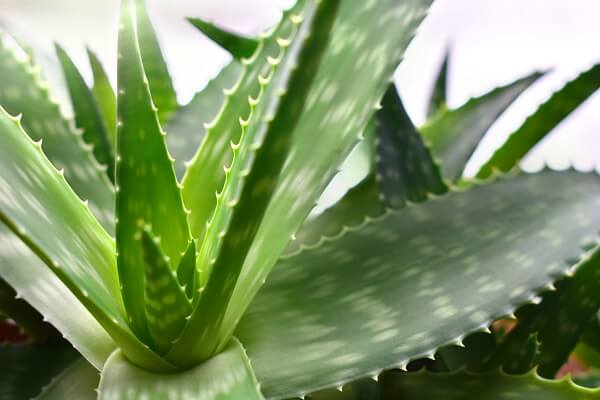
Many people would argue that this isn't actually an herb, which is why it didn't make the top ten. However, it's so useful that I thought it worth mentioning anyway.
The gel inside aloe vera leaves is very good at reducing pained caused by burns, cuts, scrapes, and sunburns. This is especially true of sunburns, which is probably a common occurrence if you work outside on your homestead all day. The gel will also help your skin heal faster.
Conclusion
Having your own herb garden in your yard or patio or even on your windowsill can reduce your reliance on certain routine over-the-counter medications. In many ways, you can save money and help your family heal in more natural ways.
If you are pregnant, nursing or have a health condition, it is wise to check with your medical practitioner before using any herbal remedies.
Like this post? Don't forget to Pin It on Pinterest!
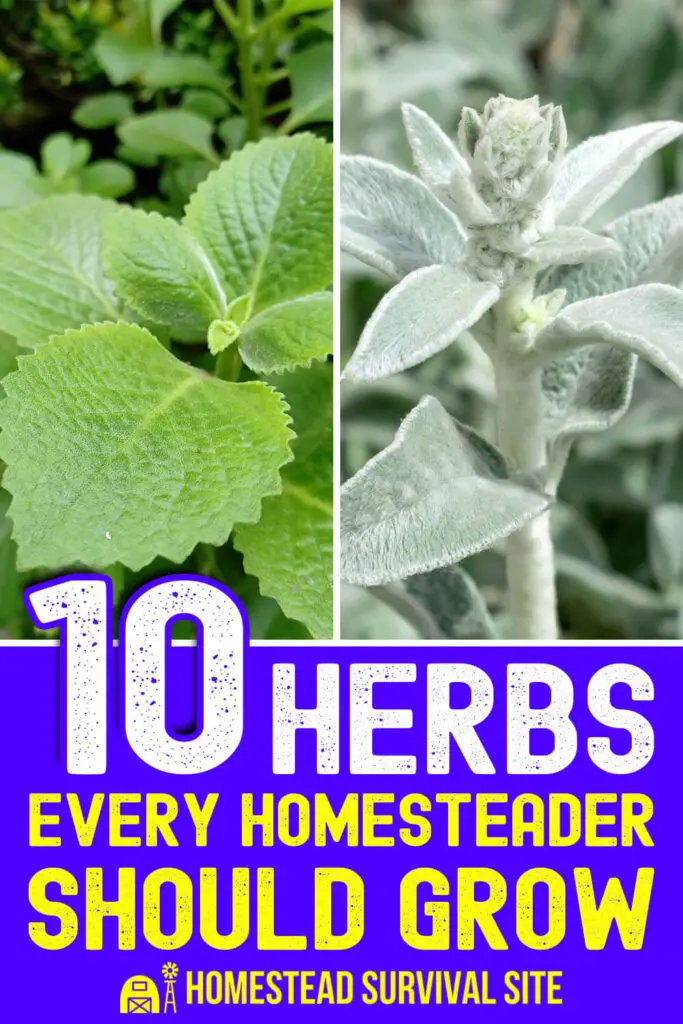



Leave a Reply